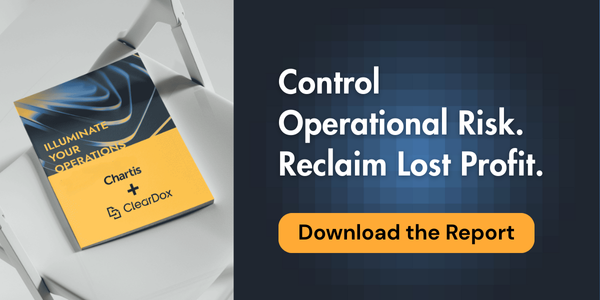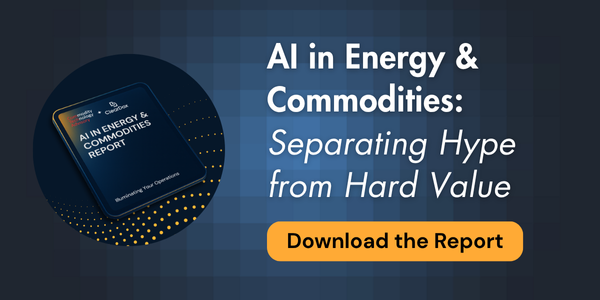ETW Europe 2025 Key Takeaways: Smarter Data Analysis in Commodities
A fundamental shift is underway in commodity trading operations.
At Energy Trading Week (ETW) Europe 2025 in London, the conversation has moved beyond whether to explore AI. The focus now: how quickly and effectively can firms implement intelligent automation to solve long-standing operational challenges.
ClearDox CTO Marc Lefebvre, speaking on the panel "Transforming Risk Management: Innovations, Challenges, and Opportunities in Emerging Technologies," emphasized that operational risk is no longer a background concern — it's a strategic priority. What used to be dismissed as inefficiency is now recognized as a core contributor to financial and compliance exposure.
Three Key Takeaways for Operations Leaders
AI is a tool for efficiency — not a replacement for expertise.
Intelligent automation accelerates insight and reduces error, but decisions still rest with human experts. It’s about clarity and speed — not control.
Operational automation is gaining real momentum.
From trade confirmations to Letters of Credit, operational teams are putting smart workflows in place to streamline core document processes and free up analyst time.
This is a document-driven industry — and AI is finally catching up.
Tools like large language models (LLMs) are purpose-built for transforming unstructured documents into structured, actionable data. That shift is enabling faster decisions and stronger compliance.
Real Conversations, Real Pressure
Across ETW sessions and booth conversations, the theme was consistent: ops teams are feeling the pressure to do more, with greater accuracy, in less time. That means eliminating blind spots, reducing manual effort, and surfacing exceptions earlier in the lifecycle.
Common pain points raised:
- Month-end crunch driven by delayed reconciliations
- Mismatches buried in large volumes of unstructured files
- Repetitive document handling eating into high-value work
As Marc noted during the panel, "These aren’t tech problems. They’re time and attention problems — and intelligent workflows can solve for both."
Moving Beyond Digitization to Operational Automation
The conversation is shifting away from "digitizing documents" and toward creating real operational automation. For many firms, that starts with:
- Trade Confirmations & Deal Recaps — highlighting discrepancies before they cascade
- LCs and BLs — structuring data for immediate visibility
- Certificates & Settlement Docs — standardizing inputs across formats and counterparties
Yes, Security Still Matters — A Lot
For firms handling sensitive contracts, pricing, and counterparties, security remains front and center. That’s why platforms like ClearDox prioritize SOC 2 compliance, encryption, and role-based access controls. These aren’t optional — they’re prerequisites for adoption.
Firms like ADNOC, Vitol, and SOCAR don’t move forward without rigorous infosec checks. ClearDox meets those expectations.
What’s Next: Agentic AI and Smart Triggers
ETW polling revealed that while many firms have experimented with AI, few have implemented agentic AI — where software agents not only analyze, but also initiate workflows.
That’s where momentum is headed.
Forward-looking ops teams are starting to:
- Flag and triage mismatches automatically
- Trigger internal reviews based on contract risk or financial exposure
- Link document context across systems for faster decisions
Agentic AI is no longer theoretical. It’s becoming a key differentiator for firms that want to scale without sacrificing oversight.
Take Action Without Falling Behind
Operational risk is no longer hidden in the back office — it’s showing up in audit findings, P&L impacts, and credit exposure. Leaders are responding by building smarter workflows around the documents that drive trading, finance, and compliance.


